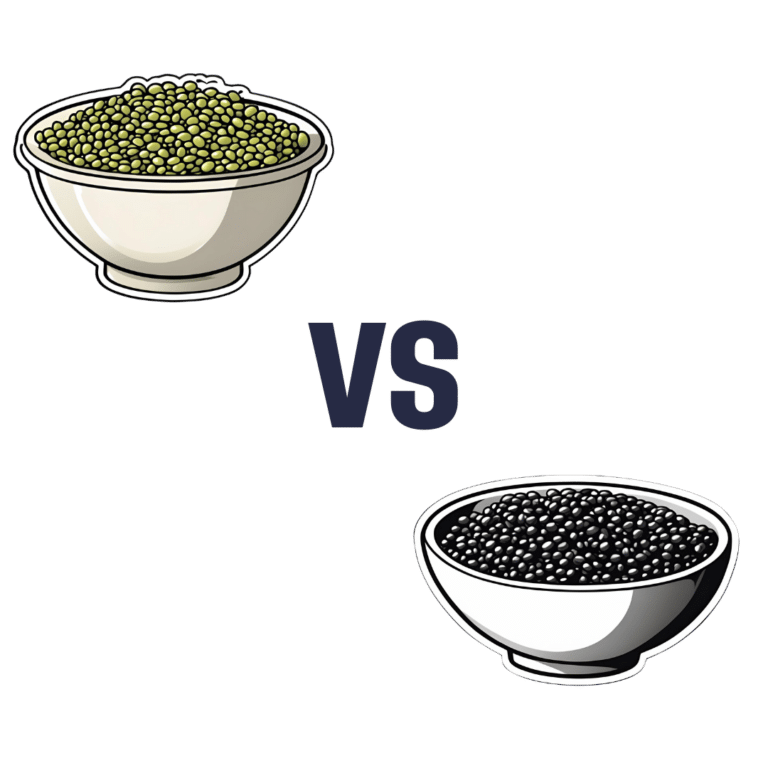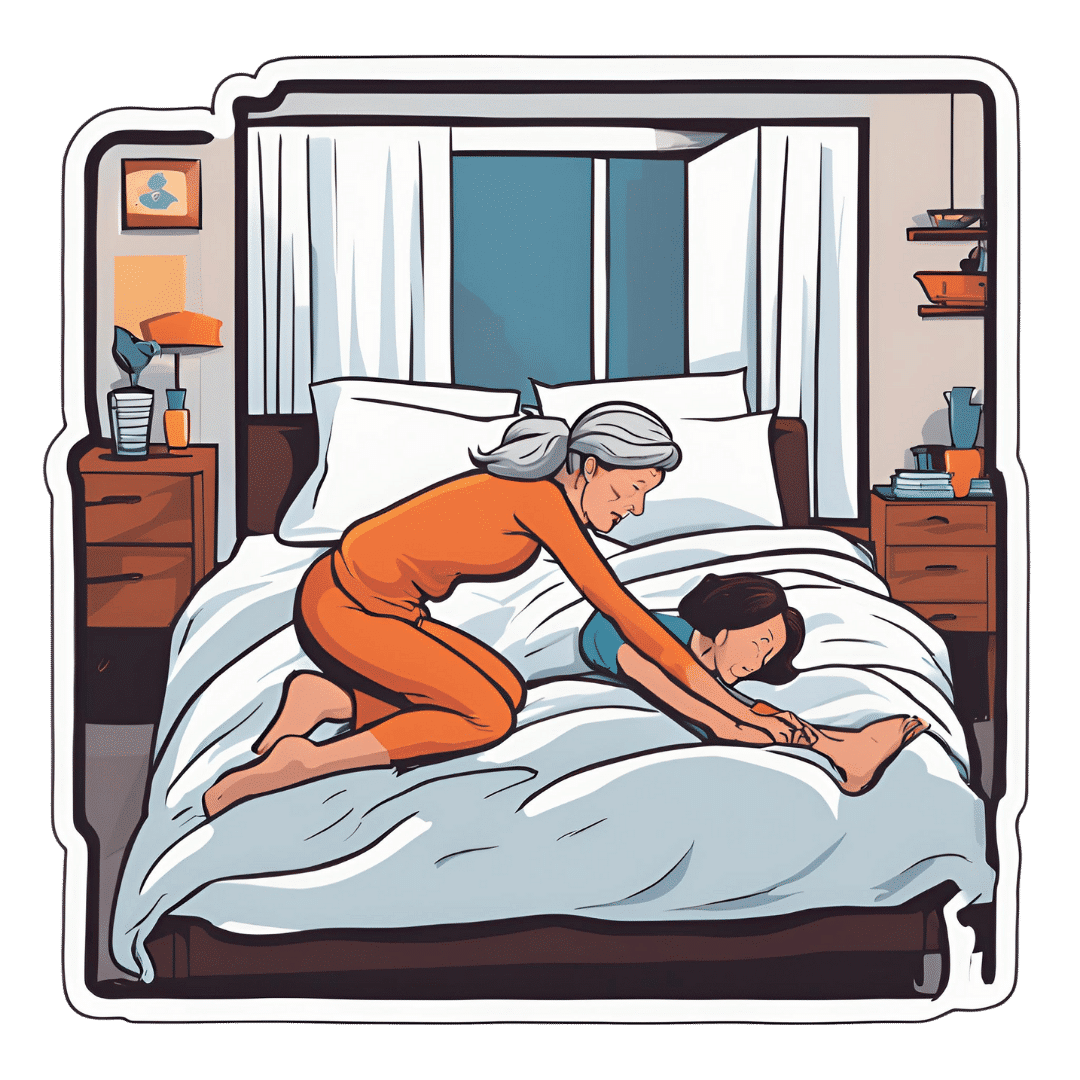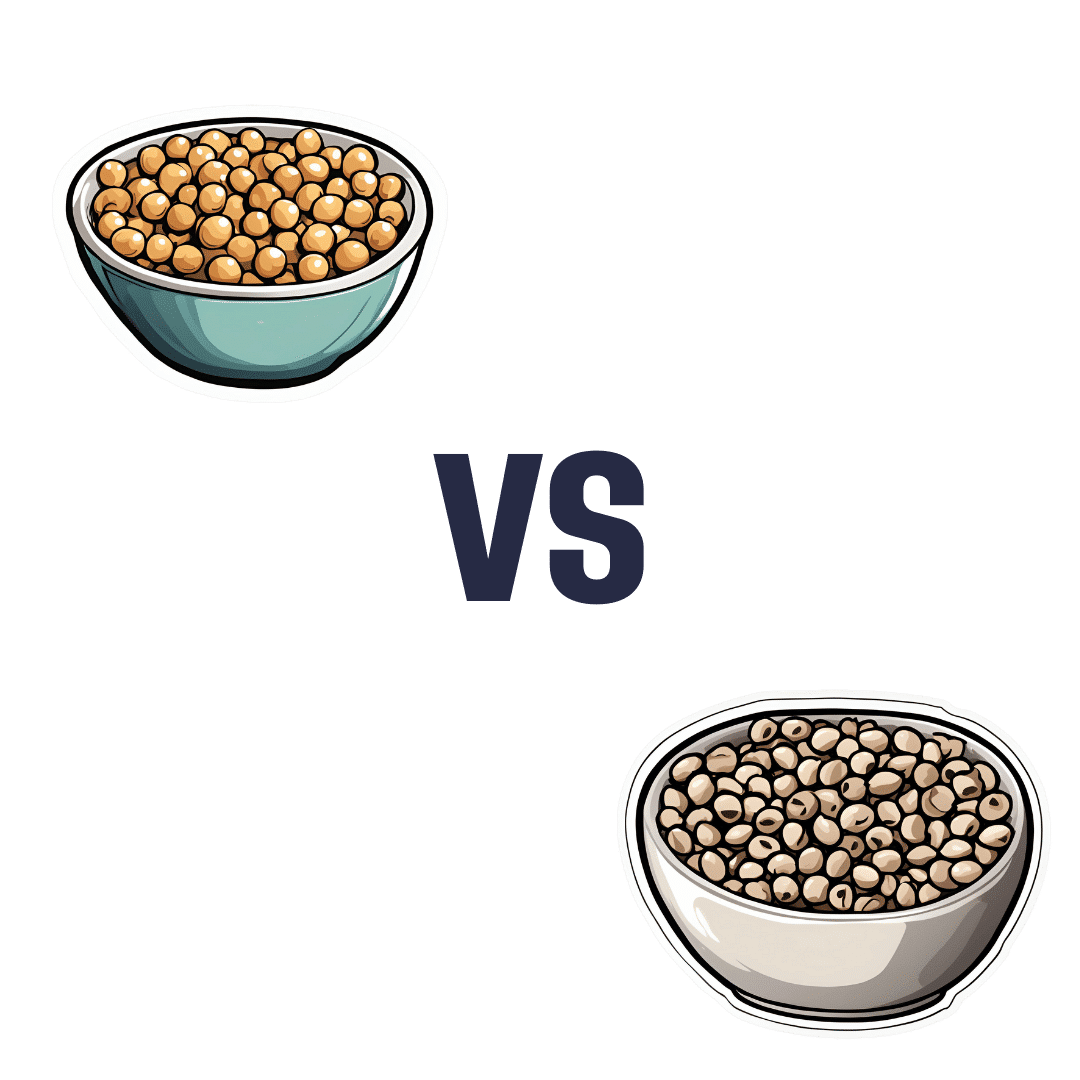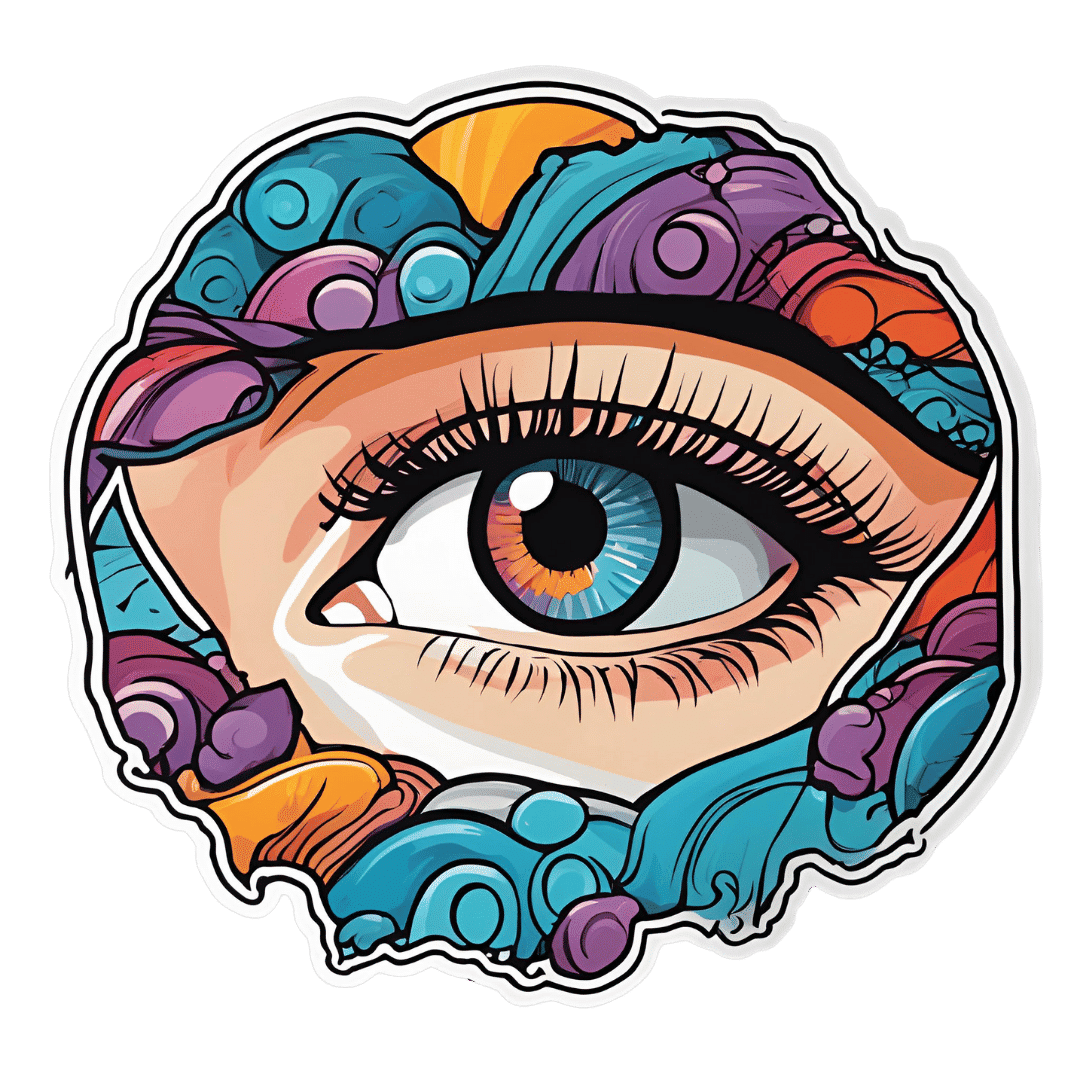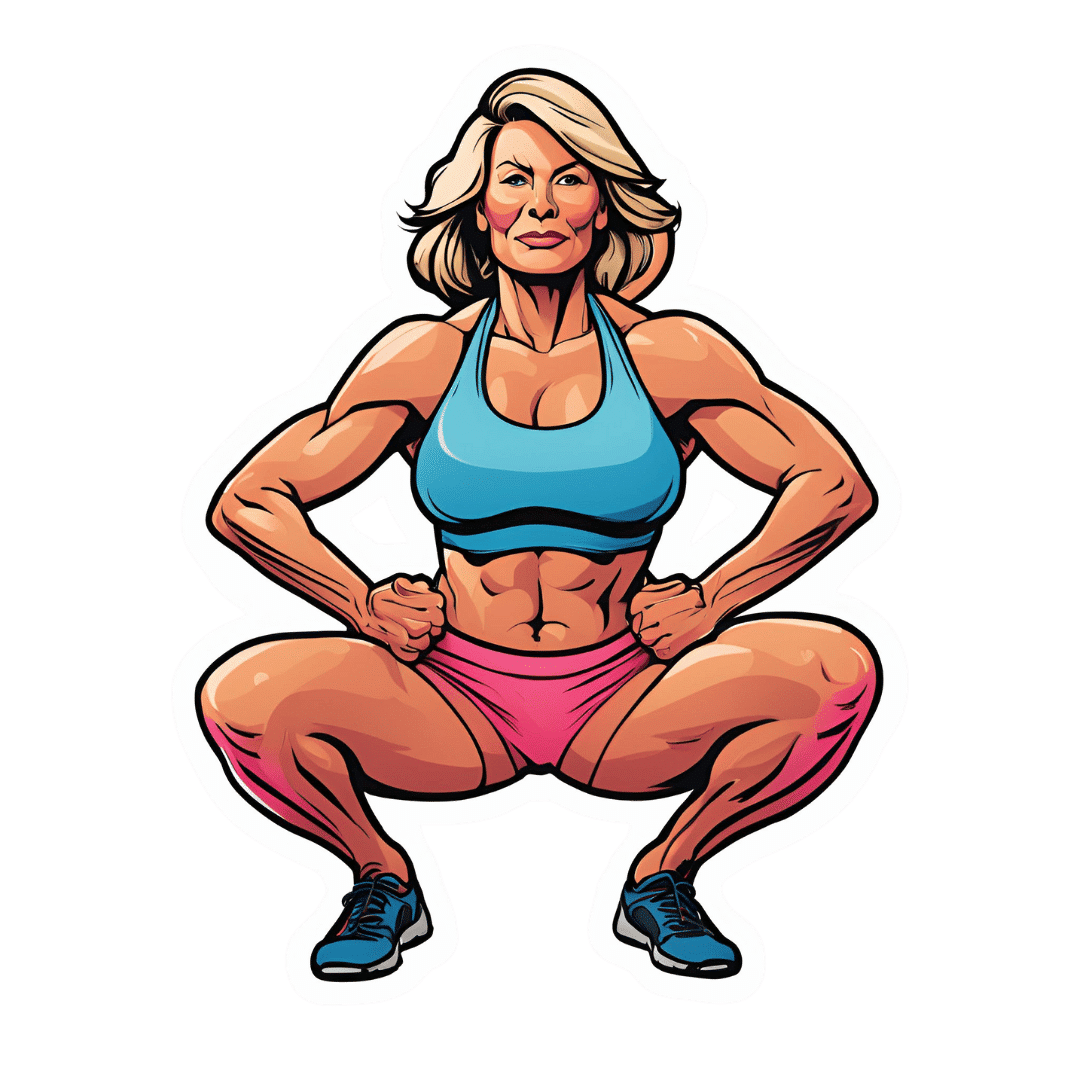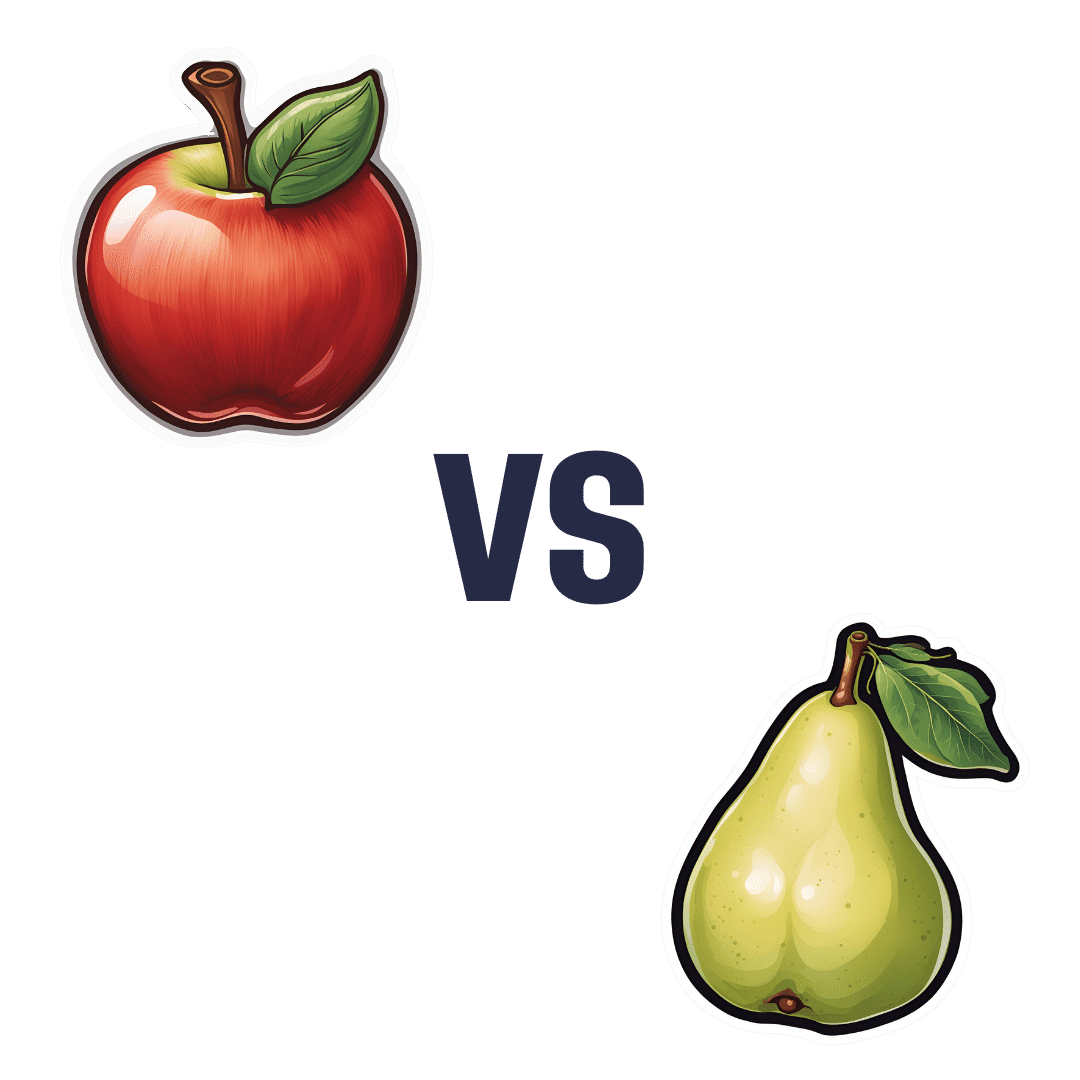
Lemon vs Lime – Which is Healthier?
10almonds is reader-supported. We may, at no cost to you, receive a portion of sales if you purchase a product through a link in this article.
Our Verdict
When comparing lemons to limes, we picked the lemons.
Why?
This one’s simple today. They’re both comparable fruits in most ways, and their macro profiles are almost identical. When it comes to vitamins, however, they stand apart a little.
Both are most well-known for their vitamin C content, but lemons contain about 2x the vitamin C of limes.
In other vitamins, they’re not too far apart. Technically limes have 2x the vitamin A, but this doesn’t count for much because it’s a case of “two times almost nothing is still almost nothing”.
In the category of minerals, neither fruit is a very good source of most minerals, and the minerals they do have, are mostly more or less the same.
Both are acidic, and this can have blood sugar benefits in both cases (and, if not careful, damage tooth enamel in both cases). Nothing to set either apart from the other here.
So, it comes down to the vitamin C! In which category, lemons take the prize with their higher content.
Want to learn more?
You might like to read:
10 Ways To Balance Blood Sugars ← where it talks about the use of vinegar here, it’s about the acidity, so lemon juice or lime juice is an option too!
Take care!
Don’t Forget…
Did you arrive here from our newsletter? Don’t forget to return to the email to continue learning!
Recommended
Learn to Age Gracefully
Join the 98k+ American women taking control of their health & aging with our 100% free (and fun!) daily emails:
-
Over 50? Do These 3 Stretches Every Morning To Avoid Pain
10almonds is reader-supported. We may, at no cost to you, receive a portion of sales if you purchase a product through a link in this article.
Will Harlow, over-50s specialist physiotherapist, recommends these three stretches be done daily for cumulative benefits over time, especially if you have arthritis, stiff joints, or similar morning pain:
The good-morning routine
These stretches are designed for people with arthritis and stiff joints, but if you experience any extra pain, or are aware of having some musculoskeletal irregularity, do seek professional advice (such as from a local physiotherapist). Otherwise, the three stretches he recommends are:
Quad hip flexor stretch
This one is performed while lying on your side in bed:
- Bring the top leg up toward your body, grab the shin, and pull the leg backward to stretch.
- Feel the stretch in the front of the leg (quadriceps and hip flexor).
- Hold for 30 seconds and repeat on both sides.
- Use a towel or band if you can’t reach your shin.
Book-opener
This one helps improve mobility in the lower and mid-back:
- Lie on your side with arms at a 90-degree angle in front of your body.
- Roll backward, opening the top arm while keeping legs in place.
- Hold for 20–30 seconds or repeat the movement several times.
- Optionally, allow your head to rotate for a neck stretch.
Calf stretch with chest-opener
This one combines a calf and chest stretch:
- Stand in a lunged position, keeping the back leg straight and heel down for the calf stretch.
- Place hands behind your head, open elbows, and lift your head slightly for a chest stretch.
- Hold for 20–30 seconds, then switch legs.
For more on all the above plus visual demonstrations, enjoy:
Click Here If The Embedded Video Doesn’t Load Automatically!
Want to learn more?
You might also like:
Take care!
Share This Post
-
Chickpeas vs Black-Eyed Peas – Which is Healthier?
10almonds is reader-supported. We may, at no cost to you, receive a portion of sales if you purchase a product through a link in this article.
Our Verdict
When comparing chickpeas to black-eyed peas, we picked the chickpeas.
Why?
In terms of macros, chickpeas have more protein, carbs, and fiber, the ratio of the latter two also giving them the lower glycemic index. An easy win for chickpeas.
In the category of vitamins, chickpeas have more of vitamins B2, B6, C, E, K, and choline, while black-eyed peas have more of vitamins B1, B5, and B9. Another victory for chickpeas.
When it comes to minerals, things are even more pronounced: chickpeas have more calcium, copper, iron, manganese, phosphorus, potassium, selenium, and zinc, while black-eyed peas have (barely) more magnesium. An overwhelming win for chickpeas.
Adding up the sections makes for a very evident overall win for chickpeas; as ever, do enjoy either or both though; diversity is good!
Want to learn more?
You might like to read:
What’s Your Plant Diversity Score?
Enjoy!
Share This Post
-
10 Great Exercises to Improve Your Eyesight
10almonds is reader-supported. We may, at no cost to you, receive a portion of sales if you purchase a product through a link in this article.
If your eyesight has been declining a bit, all is not lost. Just like many other muscles in the body, the muscles of the eye—including those responsible for changing the focal length of your vision—can atrophy without exercise. So, without further ado, here are the exercises recommended:
The eyes (still) have it
- Blink for a minute: blink rapidly for 30–60 seconds to regulate blood circulation, lubricate your eyes, and prevent dryness.
- Rotate your head while staring ahead: turn your head in a circular motion while keeping your gaze straight ahead. This improves blood circulation to your eyes.
- Look to your right and left: slowly move your gaze from right to left while breathing. This one relaxes and stretches the eye muscles.
- Close your eyes and relax: close your eyes for at least 30 seconds to relax and strengthen your photoreceptor cells.
- Move your gaze in different directions: shift your gaze right-left, up-down, in circular motions, and trace a figure 8 with your eyes. This improves visual perception for both near- and far-sightedness.
- Close and open your eyes: tighten your eyes shut for 3–5 seconds, then open them. Repeat seven times to improve blood circulation and relax your eye muscles. ← 10almonds note: the duration makes this different from #4, so do try both!
- Push against your temples with your fingers: gently press your temples with your fingers for two seconds, then release. Repeat 4–5 times to improve fluid circulation in your eyes.
- Draw geometric figures with your gaze: use your eyes to trace shapes such as triangles, squares, and circles to enhance your eye coordination and muscle strength.
- Move your eyeballs up and down: close your eyes and slowly move your eyeballs up and down five times to stretch and relax the muscles ← 10almonds note: this seems to be the same as part of #5 and has a considerable overlap with #8, but we’re listing it anyway, or else everyone will wonder where #9 went!
- Strengthen near and far focusing: focus on your thumb 10 inches away for 10–15 seconds, then switch focus to an object 10–20 feet away. Repeat five times to improve focus adjustment ability.
By practicing these exercises daily, we are told that you can improve eye health and vision within a week.
For more on all these, plus visual demonstrations, enjoy:
Click Here If The Embedded Video Doesn’t Load Automatically!
Want to learn more?
You might also like to read:
Vision for Life, Revised Edition – by Dr. Meir Schneider
Take care!
Share This Post
Related Posts
-
No Equipment Muscle Gain Routine for Ages 50+
10almonds is reader-supported. We may, at no cost to you, receive a portion of sales if you purchase a product through a link in this article.
Sarcopenia, the loss of muscle mass commonly associated with aging, can be a big problem as it leaves us vulnerable to injury (and also isn’t great for the metabolism—keeping adequate muscle mass ensures keeping the metabolism ticking over nicely). Will Harlow, over-50s specialist physiotherapist, is here to share a routine that works without weights:
Where it counts
There’s a fair amount of emphasis here on the lower body and core. That’s because in practical terms, this is what matters more for our health than having bulging biceps:
- First exercise: donkey calf raises to build strength in the calves using a chair.
- Second exercise: single-leg elevated lunge to work the quads and glutes, using a step or books for elevation.
- Third exercise: slow sit-to-stand for quads, glutes, and core strength, focusing on a slow descent.
- Fourth exercise: wall press-up to strengthen the chest, shoulders, and arms, with a variation using towels for increased resistance.
- Final exercise: shoulder raises using bottles or similar weights to target the shoulders and rotator cuffs.
Ok, so that last one was a slight cheat on his part as it does require grabbing a weight, but it’s not specialist equipment at least, and can just be something you grabbed at home. It’s also the least important of the five exercises, and can be skipped if necessary.
For more on all of these plus visual demonstrations, enjoy:
Click Here If The Embedded Video Doesn’t Load Automatically!
Want to learn more?
You might also like to read:
Take care!
Don’t Forget…
Did you arrive here from our newsletter? Don’t forget to return to the email to continue learning!
Learn to Age Gracefully
Join the 98k+ American women taking control of their health & aging with our 100% free (and fun!) daily emails:
-
Apple vs Pear – Which is Healthier?
10almonds is reader-supported. We may, at no cost to you, receive a portion of sales if you purchase a product through a link in this article.
Our Verdict
When comparing apple to pear, we picked the pear.
Why?
Both are great! But there’s a category that puts pears ahead of apples…
Looking at their macros first, pears contain more carbs but also more fiber. Both are low glycemic index foods, though.
In the category of vitamins, things are moderately even: apples contain more of vitamins A, B1, B6, and E, while pears contain more of vitamins B3, B9, K, and choline. That’s a 4:4 split, and the two fruits are about equal in the other vitamins they both contain.
When it comes to minerals, pears contain more calcium, copper, iron, magnesium, manganese, phosphorus, potassium, selenium, and zinc. A resounding victory for pears, as apples are not higher in any mineral.
In short, if an apple a day keeps the doctor away, a pear should keep the doctor away for about a day and a half, based on the extra nutrients ← this is slightly facetious as medicine doesn’t work like that, but you get the idea: pears simply have more to offer. Apples are still great though! Enjoy both! Diversity is good.
Want to learn more?
You might like to read:
From Apples To Bees, And High-Fructose Cs: Which Sugars Are Healthier, And Which Are Just The Same?
Take care!
Don’t Forget…
Did you arrive here from our newsletter? Don’t forget to return to the email to continue learning!
Learn to Age Gracefully
Join the 98k+ American women taking control of their health & aging with our 100% free (and fun!) daily emails:
-
How To Avoid UTIs
10almonds is reader-supported. We may, at no cost to you, receive a portion of sales if you purchase a product through a link in this article.
Psst… A Word To The Wise
Urinary Tract Infections (UTIs) can strike at any age, but they get a lot more common as we get older:
- About 10% of women over 65 have had one
- About 30% of women over 85 have had one
Source: Urinary tract infection in older adults
Note: those figures are almost certainly very underreported, so the real figures are doubtlessly higher. However, we print them here as they’re still indicative of a disproportionate increase in risk over time.
What about men?
Men do get UTIs too, but at a much lower rate. The difference in average urethra length means that women are typically 30x more likely to get a UTI.
However! If a man does get one, then assuming the average longer urethra, it will likely take much more treatment to fix:
Case study: 26-Year-Old Man With Recurrent Urinary Tract Infections
Risk factors you might want to know about
While you may not be able to do much about your age or the length of your urethra, there are some risk factors that can be more useful to know:
Catheterization
You might logically think that having a catheter would be the equivalent of having a really long urethra, thus keeping you safe, but unfortunately, the opposite is true:
Read more: Review of Catheter-Associated Urinary Tract Infections
Untreated menopause
Low estrogen levels can cause vaginal tissue to dry, making it easier for pathogens to grow.
For more information on menopausal HRT, see:
What You Should Have Been Told About Menopause Beforehand
Sexual activity
Most kinds of sexual activity carry a risk of bringing germs very close to the urethra. Without wishing to be too indelicate: anything that’s going there should be clean, so it’s a case for washing your hands/partner(s)/toys etc.
For the latter, beyond soap and water, you might also consider investing in a UV sanitizer box ← This example has a 9” capacity; if you shop around though, be sure to check the size is sufficient!
Kidney stones and other kidney diseases
Anything that impedes the flow of urine can raise the risk of a UTI.
See also: Keeping Your Kidneys Healthy (Especially After 60)
Diabetes
How much you can control this one will obviously depend on which type of diabetes you have, but diabetes of any type is an immunocompromizing condition. If you can, managing it as well as possible will help many aspects of your health, including this one.
More on that:
How To Prevent And Reverse Type 2 Diabetes
Note: In the case of Type 1 Diabetes, the above advice will (alas) not help you to prevent or reverse it. However, reducing/avoiding insulin resistance is even more important in cases of T1D (because if your exogenous insulin stops working, you die), so the advice is good all the same.
How do I know if I have a UTI?
Routine screening isn’t really a thing, since the symptoms are usually quite self-evident. If it hurts/burns when you pee, the most likely reason is a UTI.
Get it checked out; the test is a (non-invasive) urinalysis test. In other words, you’ll give a urine sample and they’ll test that.
Anything else I can do to avoid it?
Yes! We wrote previously about the benefits of cranberry supplementation, which was found even to rival antibiotics:
❝…recommend cranberry ingestion to decrease the incidence of urinary tract infections, particularly in individuals with recurrent urinary tract infections. This would also reduce the [need for] administration of antibiotics❞
Read more: Health Benefits Of Cranberries
Take care!
Don’t Forget…
Did you arrive here from our newsletter? Don’t forget to return to the email to continue learning!
Learn to Age Gracefully
Join the 98k+ American women taking control of their health & aging with our 100% free (and fun!) daily emails:

